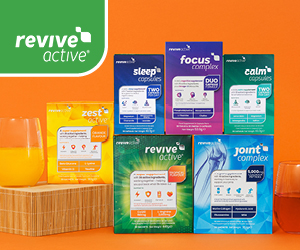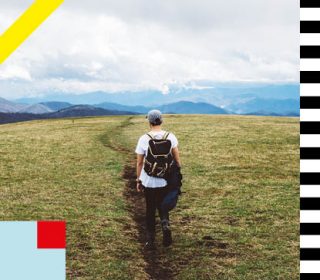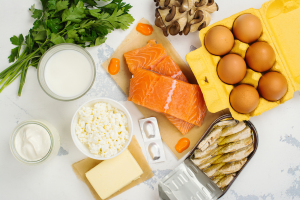Good news stories to inspire a smile

As lockdown continues, it’s important to keep morale high and moods boosted by keeping an eye out for the good news stories, even though they may be few and far between. James Gill delivers our weekly dose of positivity with updates on charity, conservation and homeschooling.
FOOD – Food for thought
If you sit and think about it, the number of individuals and industries impacted by the global pandemic
can only boggle the mind (and break the heart). While it would be clumsy, at best, to compare the plight
of health workers – literally putting their lives on the line – with what is happening to the restaurant
business (with many closing or soldiering on with a reduced takeaway service), there is at least a way to
bring these two worlds together. That’s the thinking with Fuel The Fight, an initiative aimed at feeding
our NHS staff while helping restaurants. Fuel the Fight teams up with struggling restaurants to provide
hospitals with cooked meals, purchased at full retail price. They use 100% of the donations from their
GoFundMe platform to buy meals from restaurants, who then deliver food to healthcare workers. As it
stands, between 25 to 100 NHS workers are being fed per delivery from as many different restaurants as
possible – with a potential to roll out to other UK cities. So far, over £17,000 has been raised and pumped
back into restaurants to support small businesses while also providing food for NHS staff. Please
consider donating to or sharing the campaign: Instagram @fuelthefightlondon; GoFundMe page.
EDUCATION – Tame your wild ones
If you’re a parent attempting homeschooling, you may have wondered how more teachers don’t get
into trouble for screaming into a cushion. Thankfully, there are more corporations and foundations
stepping up to offer a much-needed helping hand when it comes to educating and inspiring our little
ones. Take the World Wildlife Fund and the release of its new educational hub: Learn to Love Nature.
You’ll find activities, interactive content, videos and live webinars with WWF’s scientific experts –
indeed, mums and dads will be forgiven for having a trawl long after offspring have gone to bed, such is
the quality and quantity of inspiring content. “We’ve been working closely with communities, schools
and youth groups for over 30 years and like many parents and teachers, we want to ensure that young
people continue to receive meaningful and enriching experiences during these most challenging times,”
explains Matt Larsen-Daw, Education Manager at WWF-UK. “‘Learn to Love Nature’ is led by those at the
very heart of WWF’s conservation work and includes an entirely new programme of activities suited to
online learning, available at home and accessible to all. We look forward to welcoming students, parents
and teachers to discover more about our planet and why it’s more important than ever to reconnect
with the natural world.” To find out more, click here and join the Facebook group here.
NATURE – A gift from the cods
And you thought you were enjoying lockdown because you’d finally got into Ozark. Want to know
who’s having an even better time? Fish. That’s right. Actual fish. After all, with restaurants around the
world closed (as mentioned in our Fuel The Fight story) and many fishing boats very much docked, the
knock-on effect is that numbers of fish around the world continue to swell. Environmentalists have said
for years that we needed a pause on fishing to allow numbers to improve and, while a global pandemic
wasn’t part of anyone’s plan, one nugget of good news is the impact on our oceans. Carlos M Duarte, a
hugely respected marine biologist, explains: “Studies after the first and second world wars showed a
spectacular recovery. We are hoping that this unintended closed season between February and June or July will accelerate the recovery of fish stocks and allow us to reach conservation objectives faster.” This
global pause could also see sea mammals make more of a return, and Duarte adds: “The noise and the
activity on the water have diminished. These animals have a culture that is passed through generations
and the young ones are probably feeling curious about areas that were part of their territory decades
ago.”
ENTERTAINMENT – Oh, what a night
If there’s one thing social media loves, it’s a collective moan at a telethon. Oh, Twitter users can’t
believe their luck! Who cares if famous people are performing for free to raise money for charity: let’s
all get really angry. The mind boggles. In fact, next time there’s one on, perhaps play a game of Social
Media Telethon Bingo: “We’d raise a lot more money if these millionaires put their hand in their
pockets!” “We wouldn’t be in this mess if <insert name of celebrity> paid his taxes!” And so on. But it
would take a special type of cynic to not be impressed at Big Night In, which recently raised a staggering
£67 million for charity following Thursday’s (23 April) televised event. That’s some going, given how
quickly it was put together, with Peter Kay, Lenny Henry, Catherine Tate, Rachel Parris and many more
entertaining an audience of around 6.7 million, with money raised being split between Comic Relief and
Children In Need. “It was so much fun,” Rachel tells BALANCE. “And to raise so much money for so many
amazing causes tells you everything you need to know about the British public – it really felt like
everyone coming together during what is obviously otherwise a sh*tty situation.” In fact, if you need
further lockdown entertainment, BALANCE can heartily recommend Rachel’s Lip Sync Battles with
husband and fellow comedian Marcus Brigstocke. If you’re yet to enjoy, get on board; you have some
hugely enjoyable catching up to do. Follow Rachel across social media: @rachelparri
SCIENCE – For that urgent pop to the shops
Masks haven’t caused this much controversy since the first Scream movie in 1996. Do we wear them?
Do we not? As it stands, most countries suggest that the public should wear them when out and about,
while here in Blighty, officials seem to opt for mask-free sojourns. From what BALANCE has seen on its
daily walks, masks are on the rise in recent weeks and, if you want to join in, new research in the scientific
journal ACS Nano could prove incredibly useful. The following friendly disclaimer almost goes without
saying yet we feel compelled to stress: BALANCE isn’t saying this will definitely protect you from
coronavirus (heck, given the way the daily briefings have been going of late, does anyone actually know
anything about anything?) and if you want to learn more, we advise you visit the ACS site here. However, it is something to bear in mind if you’re looking to make a mask at home.
The research says: “SARS-CoV-2, the new coronavirus that causes COVID-19, is thought to spread mainly through respiratory droplets when an infected person coughs, sneezes, speaks or breathes. These droplets form in a wide range of sizes, but the tiniest ones, called aerosols, can easily slip through the openings between certain cloth fibres, leading some people to question whether cloth masks can actually help prevent disease. Therefore, Supratik Guha at the University of Chicago and colleagues wanted to study the ability of common fabrics, alone or in combination, to filter out aerosols similar in size to respiratory droplets.” Following tests, the research suggests, if you are to make a homemade mask, combining cotton with “certain types of chiffon and natural silk” may prove effective. The research adds: “Overall, we find that combinations of various commonly available fabrics used in cloth masks can potentially provide significant protection against the transmission of aerosol particles.” If you do need to do that urgent supermarket shop, it’s at least something to bear in mind. Oh, and any funny looks your homemade mask gets from fellow shoppers aren’t on us either.
Have you heard of a story that you think we should include in Good News? Email deputy editor James Gill at [email protected]











